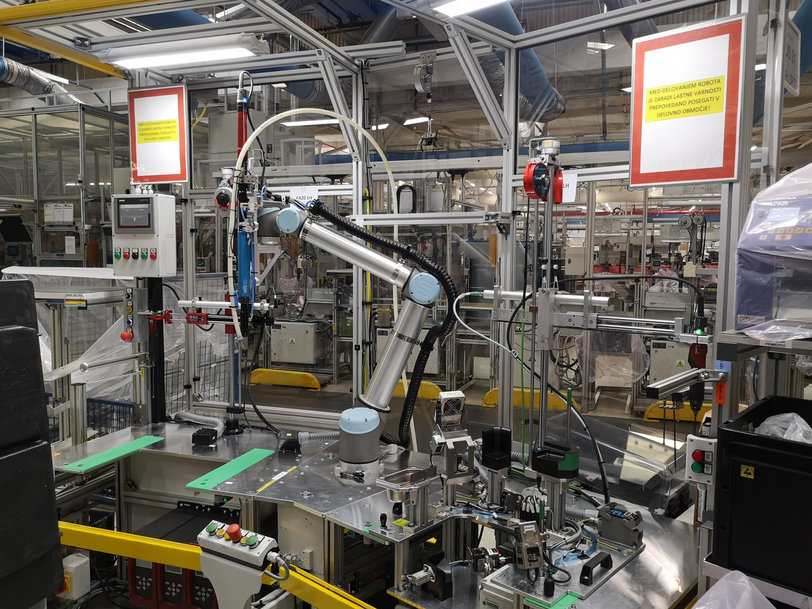www.usa-automation.net
05
'21
Written on Modified on
HELLA News
COBOTS AND ARTIFICIAL INTELLIGENCE: HELLA CONTINUES TO DRIVE FORWARD SMART AUTOMATION IN LIGHTING PRODUCTION
The global automotive supplier HELLA is continuing to drive forward its global automation initiative. That is why the company is investing a figure in the high two-digit millions (Euros) to further automate the 15 production sites in its global lighting division. Most notably, this involves implementing collaborative robots (cobots) and artificial intelligence methods. The project is scheduled to run for a total of five years. There will be 1,000 cobots used in total worldwide, roughly half of which are already in use.

“By further automating our plants more, we not only want to additionally increase our efficiency, but also improve our high level of quality even more,” says Dr. Frank Huber, Managing Director responsible for the Lighting division at HELLA. “By doing so, we want to further strengthen our position as one of the world's leading suppliers in the field of automotive lighting.”
Due to the high level of complexity involved, the production of headlamps and rear combination lamps is still characterised by a comparatively high proportion of manual activities. At the same time, the projects are usually very model specific and therefore only have a limited runtime, meaning that it is not profitable to use conventional industrial robots in certain production sections. “Full automation is often not productive for us,” says Huber. "That is why we are focusing primarily on smart automation for our manufacturing processes. Cobots in particular play an important role here. They can be easily integrated and flexibly adapted and make a significant contribution to assisting colleagues in production in the long term.” Cobots are specially designed for collaboration between man and machine. Compared to traditional industrial robots, they do not operate shielded and do not require a separate protective device. Therefore, they can be introduced into existing production processes, saving on costs and space.
Currently at HELLA, cobots are primarily used in pre-production and in the final assembly of headlamps and rear combination lamps. At the HELLA plant in Bánovce, Slovakia, for example, they transport rear lamp modules between production and testing stations. In total, over 500 cobots have already been introduced to HELLA's lighting plants. Applications with 500 additional cobots are currently being implemented or prepared for installation in the second half of the project, which has now been launched. Completion is scheduled for May 2023.
In addition, HELLA also relies on using artificial intelligence (AI) as part of the “Smart Automation project” for quality testing, among other things. For example, the company's first AI-based decorative quality inspections for lenses have been introduced in the lighting plant at the company's headquarters in Lippstadt and subsequently rolled out at the plant in Wembach. At the Lippstadt site, industrial robots are also programmed based on AI. Additional use cases with artificial intelligence are to be rolled out in other European production facilities from autumn this year.
To further promote exchanging best practice solutions in the global HELLA plant network, individual lighting plants act as specialised competence centres for specific production processes. In this role, they set global process and technology standards and support further implementation. “We want to distribute knowledge and responsibilities across the regions in a targeted way and share the workload," says Dr. Frank Huber. “This enables us to implement smart automation for our production much faster across the board, while promoting collaboration across our global network.”
www.hella.com

